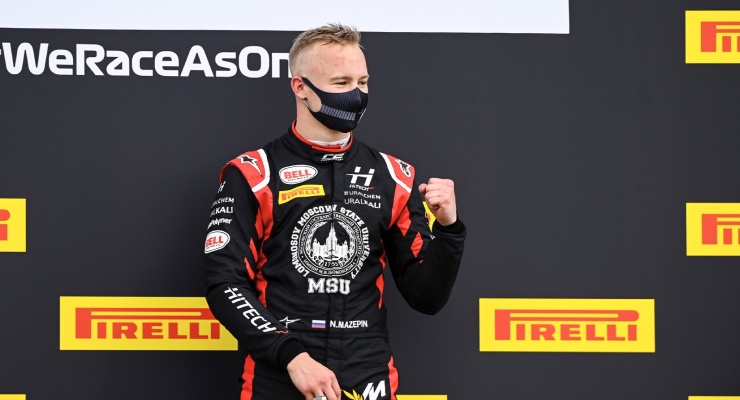
2020 saw a great deal of things happen: wildfires, a pandemic, Trump losing the election. Another thing that happened was a whole host of global brands making anti-racism pledges, promising to do more to have a positive impact. One such brand was Formula 1.
Formula One happens to have an established history of racism, mostly from the fans themselves, and also mostly targeted at Lewis Hamilton. However, where F1 hasn’t necessarily explicitly denied opportunities based on race, they haven’t ever really done much to address the racial inequalities in access to motorsports that stop many black drivers from having access to the sport.
As part of the We Race As One campaign in 2020, Formula One started to speak up more on racism, however, this was done very inconsistently at best, and not at all at worst. #WeRaceAsOne saw drivers kneel before each race, record a video saying they oppose racism, and plaster a rainbow over a lot of promotional material. What this campaign didn’t see was any commitment to actually addressing the race-based issues in F1, instead, Lewis Hamilton stepped up and did everything that Formula One should’ve been doing. The Hamilton Commission aims to increase representation of black people in UK motorsport by identifying the barriers to entry and provide solutions to them. If one driver can set up all of that, you’d surely think that Formula One as a whole could do better than a few rainbow stickers.
Instead of supporting Hamilton’s advances in anti-racism, they instead have fought him on it. Notably, they created a whole new rule just to ban him from wearing a Breonna Taylor t-shirt, which he wore with the intention of highlighting human rights issues. Lewis Hamilton has been practically tackling racism and using his platform to amplify the voices of people like Breonna Taylor, whereas Max Verstappen was accused by the country of Mongolia of racism after using a racial slur, and yet only one of these drivers faced any negative outcome, and it wasn’t the racist one.
Formula One isn’t only demonstrably racist, the sport also has a problem with sexism that persists to this day. There’s the obvious issue of there not being a single female F1 driver at the moment, but there’s also a massive problem where the women who do have a role in motorsport get criticised disproportionately for any minor issue, where men in the same role are fine. For example, former Williams team principal Claire Williams has been criticised for bringing her child to races, with fans acting like that somehow has an impact on the performance of the team. This is despite the fact that most of the other team principals also have children. Similarly, Susie Wolff, former Williams reserve driver, shared that she was too embarrassed to even share some of her experiences with F1 sexism because it makes the sport look bad.
Once again, there are attempts by individuals to address this, but next to nothing from F1 themselves. In particular, Susie Wolff established Dare To Be Different to encourage more girls to gain an interest in motorsports. Additionally, W Series was established as a women-only racing series similar to F3 to create more places for women in motorsport, highlighting the talent of female drivers like Jamie Chadwick. However, there is still a lack of effort being put in from the top of F1, which arguably slows down progress massively.
More than just slowing down progress, F1 have actually recently actively taken steps backwards, by adding Saudi Arabia to the calendar. They already go to China, Bahrain, and Azerbaijan, so F1 were already ignoring human rights issues in their calendar, but the fact that the Saudi Arabia announcement came after a whole season of the #WeRaceAsOne campaign has solidified the fact that F1 have to concrete commitment to any social cause. Saudi Arabia offered the most money and have a lot to gain from sportswashing, so of course, F1 could overlook human rights issues.
Additionally, F1 are also gaining a driver who was recorded sexually harassing a woman at a party and are seemingly doing nothing to punish him for his actions, despite many fans sharing that they feel unsafe and uncomfortable having him in the sport. It isn’t even as if it could be argued that Mazepin is a particularly talented driver, given that he only finished fifth in the 2020 F2 championship, meaning that excluding Mick Schumacher, there are three drivers who can be seen as better placed to take up a seat in F1. For example, Callum Ilott has been left without a seat despite finishing second. Even if he had won the championship, his success shouldn’t excuse his actions.
Overall, #WeRaceAsOne is an ideal that F1 completely fails to live up to, and responsibility for any progress at all is consistently being placed on individuals within the sport do to things that realistically need to have a response from the sport as a whole. A commitment has been made to continue the campaign in 2021, with new initiatives like an intern programme and supporting female participation, though information on these ideas is scarce so it is unclear how great this commitment will be, especially when considering that F1 with not only going to Saudi Arabia, but also now has a driver who sexually harassed someone on camera.



Average Rating